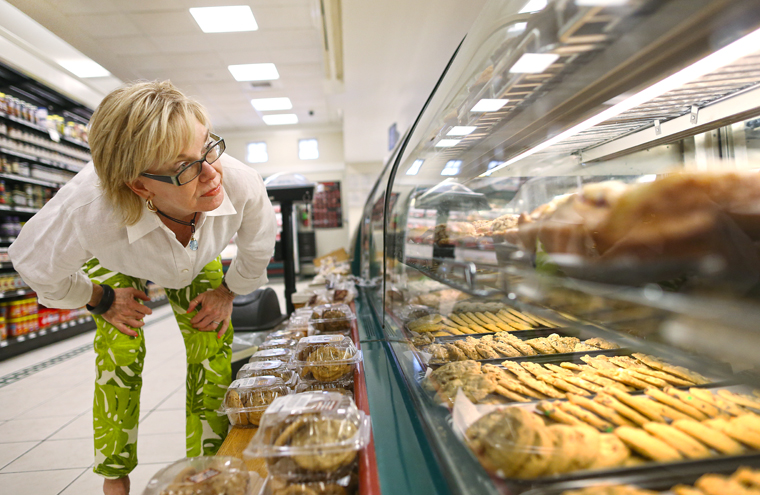
Gary Olcha winces when he recalls the days he worked in Manhattan, walking by bakeries where he’d “smell that sweet smell waft in the air.”
“I couldn’t resist it,” he said. “I’d buy a 3-pack of buns. Me, myself and I would eat it on the train home to Connecticut.”
And it wasn’t much better on the sugar front once he got to his house. It was home, sweet, home with his wife in the kitchen making fudge and other rich desserts.
“I had a life-long affliction,” said Olcha, 64. “I was a sugar addict.”
The health risks of too much sugar are well known and a major study this year from the Centers for Disease Control and Prevention has added to the indictment.
Looking at more than 30,000 adults back to 1988, it found that it doesn’t take much extra sugar to raise the risk of fatal heart problems substantially. The culprit tends to be sugars added to, and hidden in, foods.
The government recommends that added sugar should not exceed 15 percent of a person’s average daily intake of calories. For one in 10 adults in the study, the intake was 25 percent or more.
With the help of his primary care physician, Dr. Annetta Alexander, Olcha has managed to get his sugar cravings under control. The retired real estate appraiser now relies on a balanced diet and two hours in the pool on his noodle “kicking like mad” to keep his weight and insulin in check, and to get his energy.
“I loved Mars bars, loved 3 Musketeers frozen,” Olcha said. “I’d slam it on a table and get 50 little pieces and put in them in my mouth, and let them melt in my mouth. I was known as ‘the fat guy’ for a long time.”
But he’s weaned himself from that craving and feels better for it. “I was a recalcitrant person in my earlier life,” he said. “I retired at age 62, and now I’m stabilizing myself. Sugar is out of my system. I’ve trained myself not to acquiesce.”
Says his doctor: “When we think about the amount of sugar the average person consumes, you can almost say it’s a toxic amount.” Alexander, who practices at Vero Internal Medicine, cited statistics that show the average person eats 22 teaspoons of sugar a day, way in excess of what they should consume.
Females should not consume more than 20 grams of sugar (5 teaspoons) each day; males not more than 36 grams and children no more than 12 grams.
“One of the biggest problems Americans can have is identifying the hidden sugars,” she said. “Too much of the hidden sugars and we run into problems, we hit all the side effects.”
Those include diabetes, cardiovascular disease, stroke, high cholesterol and high blood pressure.
She cautions that too little sugar is also a concern, so “we can’t go to the extreme either way.” It’s needed for energy and more, and healthy when consumed in naturally occurring form and in proper amounts.
A decades-long study involving more than 33,000 Americans offered the first clear proof that drinking sugary beverages interacts with genes that affect weight, increasing a person’s risk of obesity beyond what it would be from heredity alone.
This means that such drinks are especially bad for people with genes that put them at risk of weight gain, according to the genetic research which was part of a much larger set of health studies led by the Harvard School of Public Health.
Sugary drinks are increasingly blamed for the fact that a third of U.S. children and teens and more than two-thirds of adults are obese or overweight.
Consumption of sugary drinks and obesity rates have both more than doubled since the 1970s in the U.S. One-half of the American population consumes sugary drinks every day, according to the CDC.
Delores Hayes, 65, of Vero Beach, used to drink a few sodas each day until she got her wake-up call when her sugar count got so high she was heading towards diabetes.
Six months into a good eating program, she has lost 40 pounds and her sugar level is back to normal.
“I did not want to become diabetic,” she said. “My husband is diabetic. And I did not seem to think we needed two in the household being diabetic. That frightened me.”
Now she eats nuts, and lean meats. She only has something sweet if it’s a special occasion like a wedding. “I won’t deprive myself, but I won’t bring that piece of wedding cake into my house,” she said.



